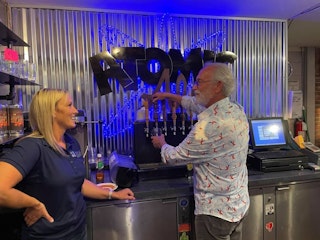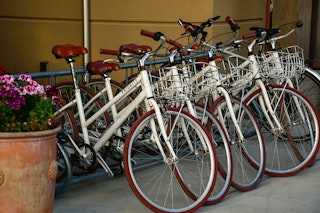Sustainability in Winemaking
Washington’s wine industry has been increasingly embracing an eco-conscious approach to winemaking.
In 2022, the state launched its first certified sustainability program for wine grapes, Sustainable WA, a science-based program requiring participating vineyards to adhere to rigorous standards of environmental stewardship, social equity, and economic viability.
Dozens of vineyards have already attained certification, including several in the Tri-Cities. Many others are currently working on earning this status, and it’s estimated that by 2024 more than a third of the state’s acres of wine-grape vineyards will have received Sustainable WA certification.
Bottles of Sustainable WA-certified wine will have a prominent logo to let consumers know they’re ultimately contributing to a culture of winemaking and farming that will benefit the land and the people living on it in perpetuity.
Environmentally minded winemaking isn’t new to the Tri-Cities region, however. Pioneering Washington vintner Bill Powers established Badger Mountain Vineyard in Kennewick in 1982 and it became the state’s first USDA Certified Organic winery, earning certification in 1990. This celebrated winery continues to be a leader in sustainable practices, and every bottle produced by the Badger Mountain Vineyard label contains wine that has been created without any synthetic treatments. Additionally, Badger Mountain uses solar panels and on-site-made biodiesel; lightweight, locally produced glass in its bottles; and recycled paper and ink for its labels.
In Red Mountain, the highly respected Hedges Family Estate has emerged as one of Washington’s most prominent biodynamic wineries. Biodynamic practices have many similarities to those of organic farming, including the avoidance of pesticides and synthetic fertilizers; however, it also involves adhering to other principles, such as following a biodynamic growing calendar and planting and harvesting by hand. Also producing biodynamic wine is the increasingly acclaimed boutique winery Domaine Magdalena, which is run by Maggie Hedges, the daughter-in-law of the founders of Hedges Family Estate. These are two of only three Washington producers that have earned Demeter Certified Biodynamic certification.
Many other area winemakers have taken steps toward going greener and reducing their carbon footprint in recent years. To cut down on waste (and for that matter cuts on fingers), Frichette Winery eliminated foil capsules from its wine bottles beginning with the 2020 vintage. The vineyards at Kitzke Cellars have been pesticide-free since 2016, and the winery uses minimal intervention techniques in its production. And since its founding in 2007, Upchurch Vineyard has taken such steps as attaining Salmon-Safe and L.I.V.E. (Low Input Viticulture and Enology) certification in its efforts to follow the greenest farming practices possible.
Another important way of encouraging sustainability is through adaptive reuse, and Kennewick’s beautiful and popular Columbia Gardens Wine Village is a terrific example. This hip and colorful complex opened in 2018 in what had been a dilapidated former industrial area at the Port of Kennewick, on the south shore of the Columbia River. The multimillion-dollar project has helped spark a neighborhood renaissance and is now home to four wineries with tasting rooms—Palencia and Monarcha, Bartholomew, Muret-Gaston and Purple Star, and Gordon Estate—along with a lively food truck court, a picturesque waterfront nature trail, public art, an outdoor performance space, and other businesses.
































